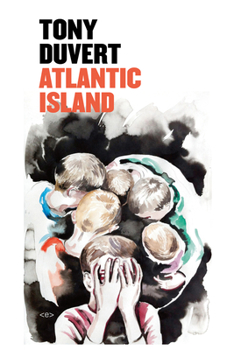Atlantic Island
A forgotten gem of French literature, Duvert's version of The Lord of the Flies an indictment against the violence embedded in a middle-class community.
Tony Duvert's novel Atlantic Island (originally published in French in 1979) takes place in the soul-crushing suburbs of a remote island off the coast of France. It is told through the shifting perspectives of a group of pubescent and prepubescent boys, ages seven to fourteen, who gather together at night in secret to carry out a series of burglaries throughout their neighborhood. The boys vandalize living rooms and kitchens and make off with, for the most part, petty objects of no value. Their exploits leave the adult community perplexed and outraged, especially when a death occurs and the stakes grow more serious.
Duvert's portrayal of adult life on this Atlantic Island is savage to the point of satire, but the boys and their thieving and sexuality are explored with sympathy. A novel on the loneliness of childhood and the solitude induced by geographical space, it is also an empathetic and generous homage to youth, a crime novel without suspense, and an unsettling fairytale for adults.
Atlantic Island today is a forgotten gem of French literature: Duvert's own version of The Lord of the Flies, it is attentive to details and precise in its depiction of French mores and language. An indictment against the violence embedded in a middle-class community, it is also a love letter to childhood, incorporating the heroic vistas in which a child needs only a fertile imagination to become the secret hero of his or her own life.





